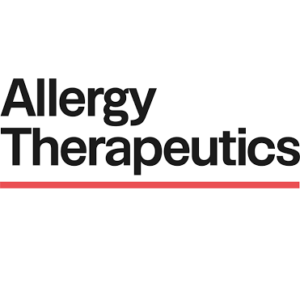Allergy Therapeutics Plc (LON:AGY), a leading, fully-integrated commercial biotechnology company specialising in allergy vaccines, today announces that new data from a study investigating immune responses produced by microcrystalline tyrosine (MCT®)-based vaccines as compared with conventional aluminium hydroxide has been published online in The Journal of Immunology. The findings demonstrate that, based on its comparable strength and mechanism of Ag-specific IgG induction and induction of T cell responses, MCT® is a suitable and flexible alternative to aluminium hydroxide as an adjuvant in both allergen-specific immunotherapy and infectious disease applications. The study also demonstrated that MCT®-adjuvanted allergens caused fewer anaphylactic reactions compared with alum-adjuvanted allergens.
“These findings provide evidence of the effectiveness of MCT as an adjuvant, confirming the mechanism of action underlying its ability to induce a robust and sustained immunological response. Additionally, the findings indicated a potentially favourable profile for the use of MCT over alum in allergy-specific vaccines,” said Matthias Kramer, M.D., Allergy Therapeutics Plc’ International Medical Director and co-author of the paper. “We believe these data highlight the significance of our differentiated proprietary platform technology in the development of our growing suite of cutting-edge, globally marketed ultra-short course allergy vaccines.”
This is the first study to report the mechanism of action by which MCT governs the immunologic response after exposure to an antigen and protection against anaphylaxis in an allergic model. The results illustrate upregulation of IgG antibody responses and a higher IgE:IgG ratio in MCT-based immunotherapy compared with Alum-based immunotherapy. A high IgE:IgG ratio has been reported to be a positive predictive marker for allergen immunotherapy in humans.
Further evaluation in this study indicated that MCT facilitates robust adaptive T cell responses with associated IFN-γ (interferon gamma) and TNF-α (tumour necrosis factor alpha), which is in line with previous studies illustrating protective efficacy in influenza and malaria applications1, 2. Meanwhile, studies in a cancer (melanoma) model are underway.


